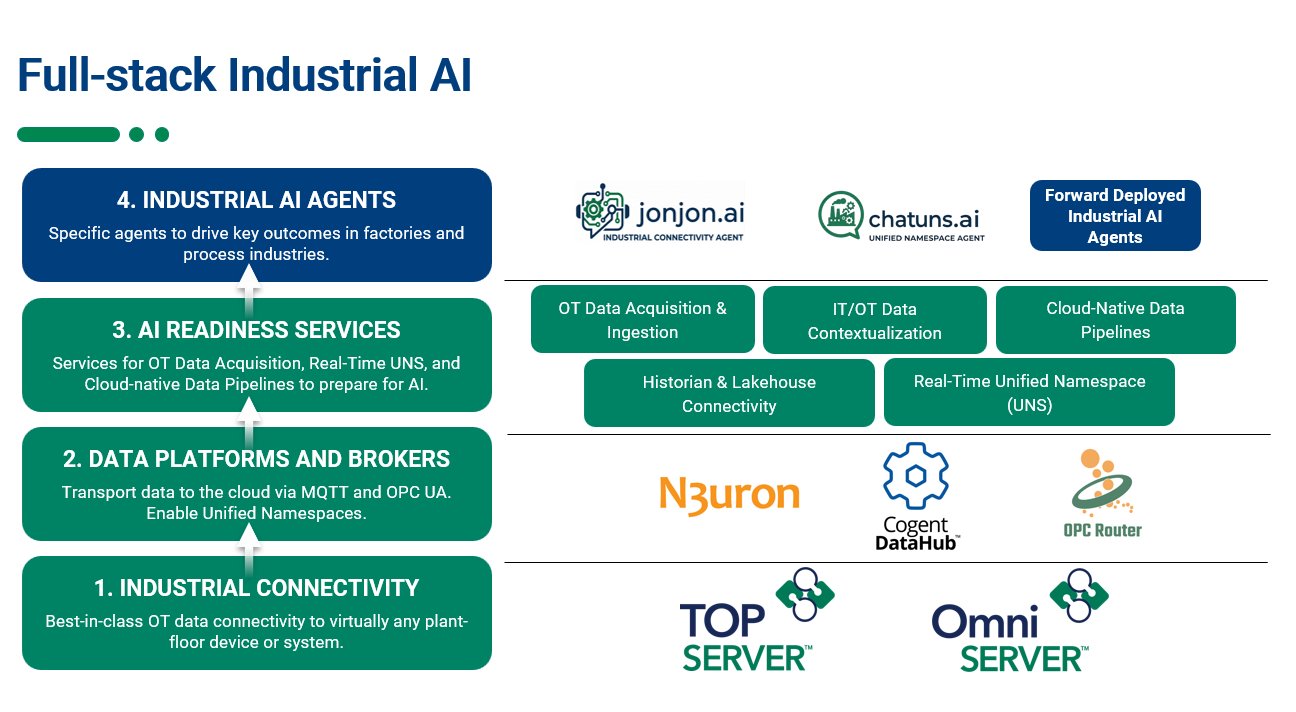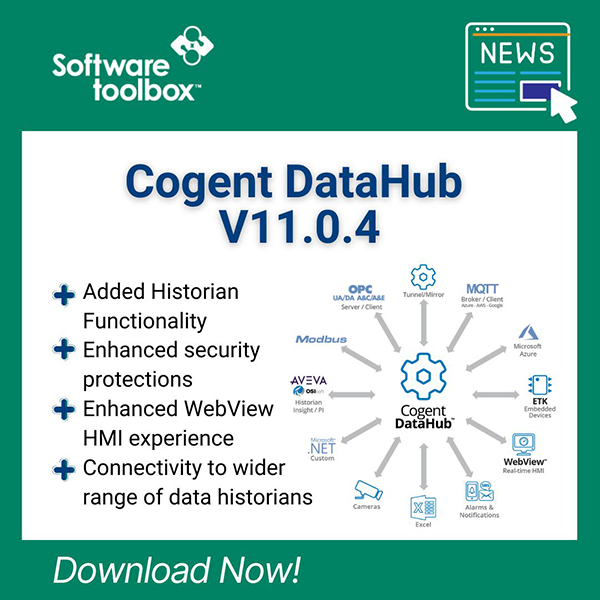In the ever-changing landscape of industrial control, the ability to establish connections and facilitate efficient data exchange between different technologies is crucial. With digital transformation, the industry requires robust integration solutions more than ever before. If you’ve been keeping up with our previously released OPC Router blogs, you're already aware that OPC Router is a flexible middleware solution that provides an array of functionalities for exchanging and integrating data across different technologies. It facilitates seamless interoperability by acting as a connection point between various data sources, protocols, and applications such as OPC DA/Classic, OPC UA, databases, REST, ERP, SAP, and more with a visual workflow editor, templates, and imports for scalable configuration.
If you are new to OPC Router and want to learn more, our OPC Router Learning Resources are a great place to get started.

Knowing when your systems are online and functional is key to the success of your business. In large operations, it could be someone's full-time responsibility to mitigate problems and fix them when they inevitably occur. This makes it critical for the right people to be alerted in a timely fashion so they can take corrective action. To facilitate this need, what if you could also have real-time updates from your process and other systems through email notifications? Rather than rely on human detection and reaction, what if your actual processes and business systems could message you via email when a connection goes down (possibly a critical system is down, or a tank is approaching a critical level)?
In this blog post, we'll cover the steps necessary to use OPC Router V4 to integrate your variety of connections with email notifications, empowering you to stay informed about downtime occurrences and expedite critical decision-making processes for your business.
Four Reasons to Have Communication Downtime Notifications
There are several reasons why downtime notifications contribute to the overall success of your business.
- Timely Response: By receiving immediate notifications when connections go down or systems experience downtime, businesses can respond promptly to resolve issues. This helps minimize the duration of downtime, reducing its impact on operations and productivity.
- Proactive Maintenance: Downtime notifications enable proactive maintenance efforts. Businesses can identify potential issues before they escalate into major problems, allowing for preventive actions to be taken to avoid costly downtime in the future.
- Enhanced Efficiency: With real-time updates on downtime occurrences, businesses can allocate resources efficiently. They can prioritize tasks based on the severity of the issue and deploy personnel or resources to address critical issues promptly, optimizing operational efficiency.
- Improved Decision-Making: Access to timely information about downtime events empowers decision-makers to make informed choices. They can evaluate the impact of downtime on various aspects of the business and implement strategies to mitigate risks or minimize disruptions.
Where Can I Set Up Communications Downtime Notifications?
- To initiate notifications for connection disruptions, start by accessing the "Connections" tab within the OPC Router Management interface.

- Next, right-click on ‘Local service’ and choose ‘Settings’ from the drop-down menu to proceed.

- Within the settings, locate the Message Group settings, identified by the blue envelope icon in the left-side menu bar. Here, you can specify the connections or plug-ins for which you desire notifications. Additionally, customize the threshold for message dispatch and specify the days and times for sending messages. To enable email notifications, you must configure a mail server. Click the blue plus button adjacent to the E-mail Sender field to add a mail server. This is also where you designate recipients.

- While you have the flexibility to select any mail server, for the sake of this blog post, Gmail will be utilized. Refer to the image below for the necessary information required to configure a Gmail account as your mail server. We specify an SMTP server name (1), port (2), input a username and application password (3), and choose who the sender will be on email notifications (4).

- After configuration, verify the setup by clicking the test button located in the bottom left corner. Successful configuration will yield a test result similar to the following, confirming proper functionality of the mail server.

Here is some additional documentation on:
- Using Google's SMTP mail server for outgoing emails
- Using Yahoo's SMTP mail server for outgoing emails
What Information Do I Get with Connection Downtime Notifications?
Now that we have configured our connection downtime notifications, let's explore the information provided in these emails. The email will include a table detailing the relevant data and may feature an attachment, as specified in the configuration settings, available in PDF, CSV, or XLSX formats. The image below illustrates the appearance of the email when no downtime has occurred.

Upon opening the PDF attachment, a similar presentation is provided, albeit in a format that is easily exportable and shareable!

You might wonder, what is the email output during downtime? How is it different? Refer to the screenshot below to understand how your connections are represented when downtime occurs.

Here we see that our REST API plug-in and our OPC plug-in failed to connect.
By identifying which plug-ins or connections require attention, we streamline the troubleshooting process during plant downtime. This eliminates the need to sift through all connections to locate the problem. With the information provided from the downtime notification, we can then use OPC Router’s built in log files to get detailed error messages and feedback by navigating to File > Log Files… > Current Log of Service.

Below is an example of an error message related to the identified issue with the OPC Server:

Conclusion
In this blog post, we have delved into the steps necessary to leverage OPC Router for integrating a variety of connections with email notifications when the connections are down. This integration empowers you to stay informed about communications downtime occurrences promptly and facilitates critical decision-making processes for your business. By configuring email alerts for your connections, you're not only ensuring timely responses to potential issues but also streamlining communication channels within your operational framework. This proactive approach not only minimizes downtime but also enhances overall operational efficiency, enabling your business to thrive in an increasingly dynamic environment.
To start evaluating how OPC Router can securely improve efficiency and interoperability in your environment, you can download the free trial. Please do make sure to visit the resources section on OPC Router's product page for information on how to use the product with other highly utilized standards.
As always, please contact us with any questions and be sure to subscribe to our blog for more tips on navigating features in OPC Router and our other software.






